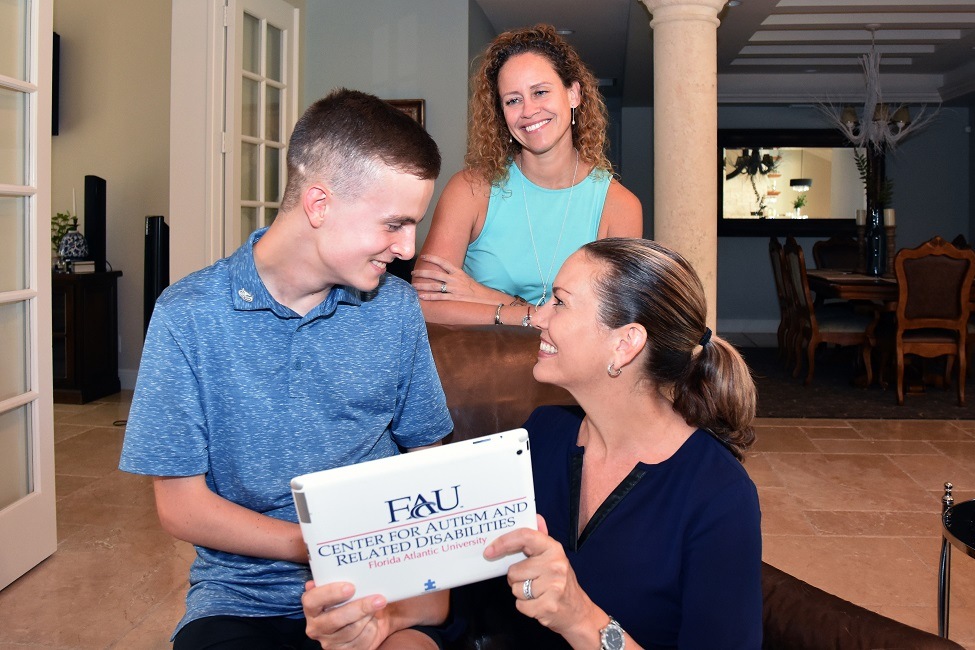
Scientists from Florida Atlantic University (FAU) and collaborators have recently found iPad video intervention to be effective in increasing independence in patients with autism spectrum disorder (ASD). This study, published in the Journal of Autism and Developmental Disorders, has strong implications for the use of digital health solutions in remote ASD management.
Adults with ASD can be very dependent on family or assistance programs to accomplish daily tasks, with only 17% of adults with ASD living independently after high school and up to eight years after. Skills such as cooking, cleaning, and getting dressed are necessary for independent living, however, many with ASD struggle to complete these tasks that involve consecutive steps.
Existing research shows that those with ASD learn best through visuals, making video interventions on mainstream devices like the tablet or smartphone an attractive route of therapy. With little evidence regarding such interventions in ASD patients available, this FAU research team aimed to address this gap in research.
Background of the FAU Study
These researchers conducted a small study to analyze whether iPad video prompting interventions would be effective in increasing parents’ confidence and ability to use mobile devices to interact with their children with ASD. The goal of this work was to assess the effects of behavior skills training and follow-along coaching to instruct parents to deliver this video intervention.
This study was unique in that the parents were coached to use the iPad remotely, and that their children were of adolescent age. Other studies have had success in educating parents as to how these therapies should be implemented, however, most of these works targeted the parents of young children.
Parents of ASD adolescents who would soon be entering adulthood were targeted in this study. The children of these parents needed to develop their living skills to decrease dependency on others and bolster their confidence and self-esteem. Children involved in this study, aged between 12 and 17 years, had to complete one of the following skills selected by their parents: make a bed, cook pasta or tie shoelaces.
The parents were educated on using an iPad and integrating the intervention into the lives of their children, learning how to guide the child to watch instructional videos, imitate what the video portrayed, and provide proper feedback. Based on the child’s performance, the parents were instructed to either give praise, corrections of errors, or a demonstration of how the task should be done (only if the child made two or more errors on the same step). Lead researcher Elisa Cruz-Torres, Ed.D., Department of Exceptional Student Education in FAU’s College of Education, observed each family’s intervention for one hour, three times a week. This was done for a five- to seven-week duration.
Results of the ASD Research
All the children in this study saw significant improvements in correct and independent completion of their daily living skills, confirming that the video prompting intervention is effective in improving daily living skills. Although parents had success in implementing this video intervention, they were inconsistent with the feedback aspect such as error correction and praise. Despite this deficit, the adolescents still mastered their respective skills and maintained this competency three weeks after intervention. The researchers also noted that none of the children needed more than 17 interventions to master their skill.
“Our findings show that video prompting interventions produced both immediate and lasting effects for children with autism spectrum disorder and that parents can be powerful delivery agents to increase independence in their children,” explained Cruz-Torres. “While it is desirable that parents follow steps exactly, we learned that even with slight variations in parent delivery, the teens still mastered the intended skills.”
“Now, when I’m working with my son to learn a new skill or even talk about a new skill, because of this study I have learned to break it down into smaller pieces rather than asking him to do the whole thing. We use this concept for other things like doing laundry. I’ve also learned that he is very responsive to praise,” said Susan Freeman, one of the parents included in this study. “John is a very visual learner so being able to see what each step should look like enables him to complete the task. He’s still making his bed and we’re working on changing the sheets, which is a new skill. I don’t have to make his bed anymore.”
#FAU Study Shows That Teens with #Autism Can Master Daily Living Skills When Their Parents Teach, Reach for an @Apple iPad #FAUNews
➡️https://t.co/Si4pFFyOb4 pic.twitter.com/OhWF6WXHs1
— FAU News Desk (@FAUNewsDesk) October 29, 2019






 © 2025 Mashup Media, LLC, a Formedics Property. All Rights Reserved.
© 2025 Mashup Media, LLC, a Formedics Property. All Rights Reserved.